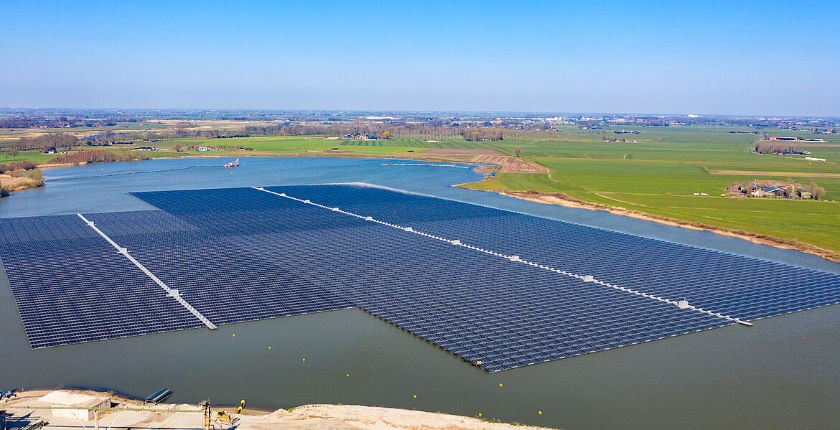Researchers from Cambridge University have developed floating artificial leaves that generate clean fuels from sunlight and water, and are hopeful they could eventually operate on a large scale at sea.
The researchers designed ultra-thin, flexible devices, which take their inspiration from photosynthesis – the process by which plants convert sunlight into food. Since the low-cost, autonomous devices are light enough to float, they could be used to generate a sustainable alternative to petrol without taking up space on land.
Outdoor tests of the lightweight leaves on the River Cam showed that they can convert sunlight into fuels as efficiently as plant leaves.
The team used thin-film metal oxides and materials known as perovskites, which can be coated onto flexible plastic and metal foils. The devices were covered with micrometre thin, water-repellent carbon-based layers that prevented moisture degradation. They ended up with a device that not only works, but also looks like a real leaf.
Tests of the new artificial leaves showed that they can split water into hydrogen and oxygen, or reduce CO2 to syngas. While additional improvements will need to be made before they are ready for commercial applications, the researchers say this development opens whole new avenues in their work.
Tags: Cambridge University, Clean Fuels, Floating Artificial Leaves, Sunlight



Recent Posts
Himachal Pradesh Plans Major Boost to Public Transport with E-Buses and Digital Upgrades
Ammonia-Fueled Container Feeder Design Marks Progress in Maritime Decarbonisation
ABS Develops Industry-Leading EV Battery Fire Simulation Modeling
Wilhelmsen Ships Service Joins the Maritime Battery Forum to Accelerate Maritime Electrification
Indian Student Team Wins Communication Prize at Monaco Energy Boat Challenge 2025
Babcock’s LGE Business Secures Contract for Marine Ammonia Fuel System to Advance Shipping Decarbonisation
Associated Terminals Deploys Liebherr’s All-Electric Cranes in Landmark Move Toward Cleaner Cargo Handling
Sanmar delivers fully electric emissions-free tug to major global operator Svitzer